Reflections on connecting with my Ipukarea

In Aotearoa, the theme for Cook Islands language week 2021 was ‘Ātuitui’ia au ki te Oneone o tōku ‘Ui Tupuna' which means, connect me to the soil of my ancestors.
The theme is very relevant to why I accepted the role as the Pacific Virtual Museum Engagement Manager. In January of 2020, I accepted the role as it would be a way to learn more about my Cook Islands culture while getting paid, and I was excited about the opportunity to possibly travel to the Pacific. The travel hasn't worked so much, but I've learned a lot more about Cook Islands culture and my family. In my first few weeks in the role, I thought "Why not search my mother’s maiden name ‘Marsters’ in Digital NZ and see what comes up?"
I didn’t think there would be any results, but to my surprise, a lot of images came up. There were images of my Mum's aunties, uncles and even saw an image of her sister. Many of the images were taken on the island of Palmerston, where my mother is from but an island she has never set foot on.
I thought that it was amazing that there were so many pictures of my family on the DigitalNZ website, and then I looked at where the photos were physically located. I was even more stunned, as these photos were being stored in the building that I was working in.
Earlier this year my mum celebrated her 70th birthday, and we surprised her by bringing over my sister and two nieces from Rarotonga. As part of the celebrations, my mum, sister and nieces came to the National Library of New Zealand to see these photographs of my mother's family that they had never seen before.
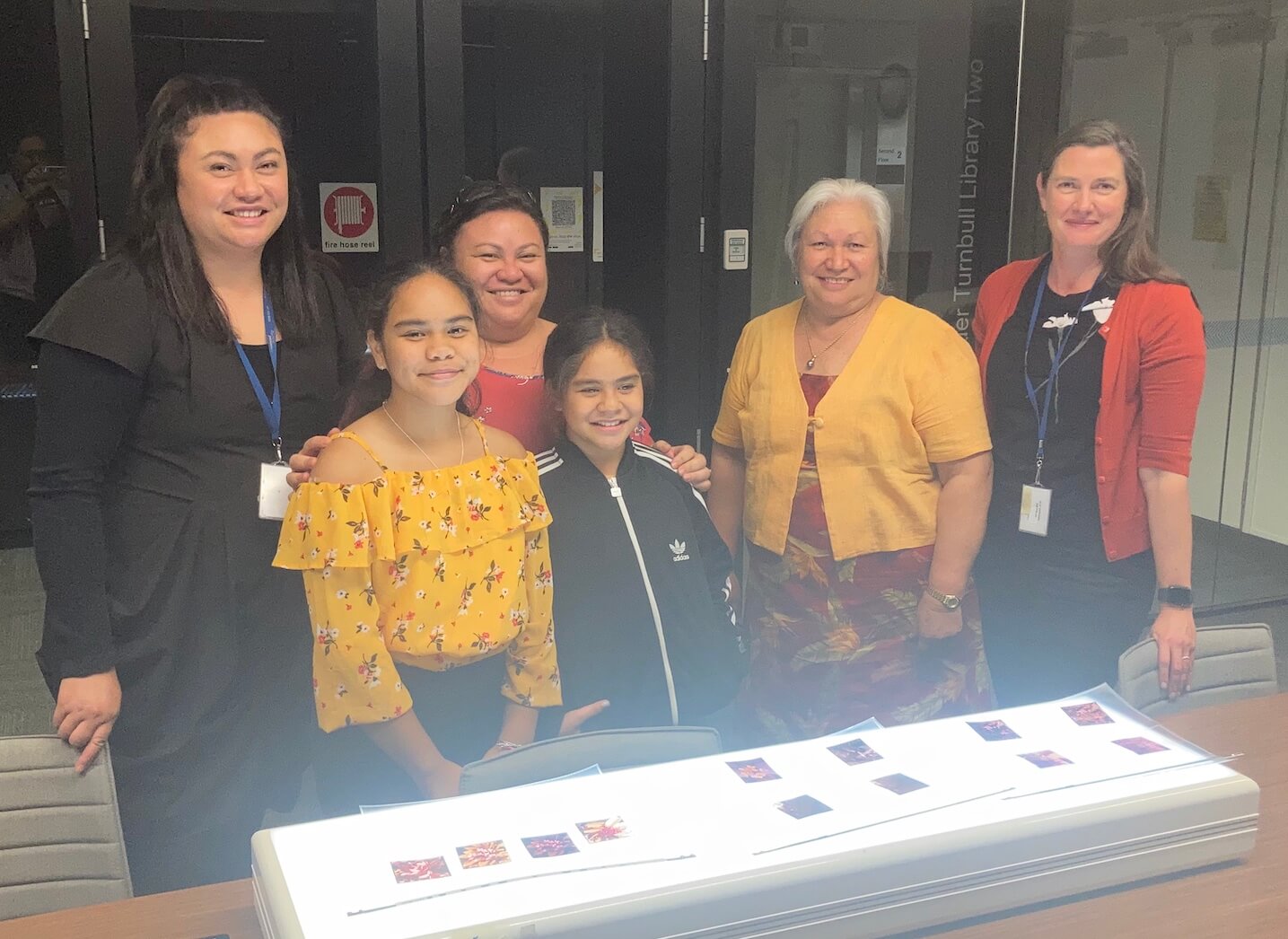
(L-R) Taputukura Raea, Metua-Ani Raea-Araitia, Rima Raea-Araitia, Avina-Noa Raea-Araitia, Caroline Raea nee Marsters and Natalie Marshall
Mum was able to recognise her aunts and uncles who she had never met in person but had heard many stories about. Mum shared stories about her younger days living in Rarotonga and shared these memories with her granddaughters who currently live there.
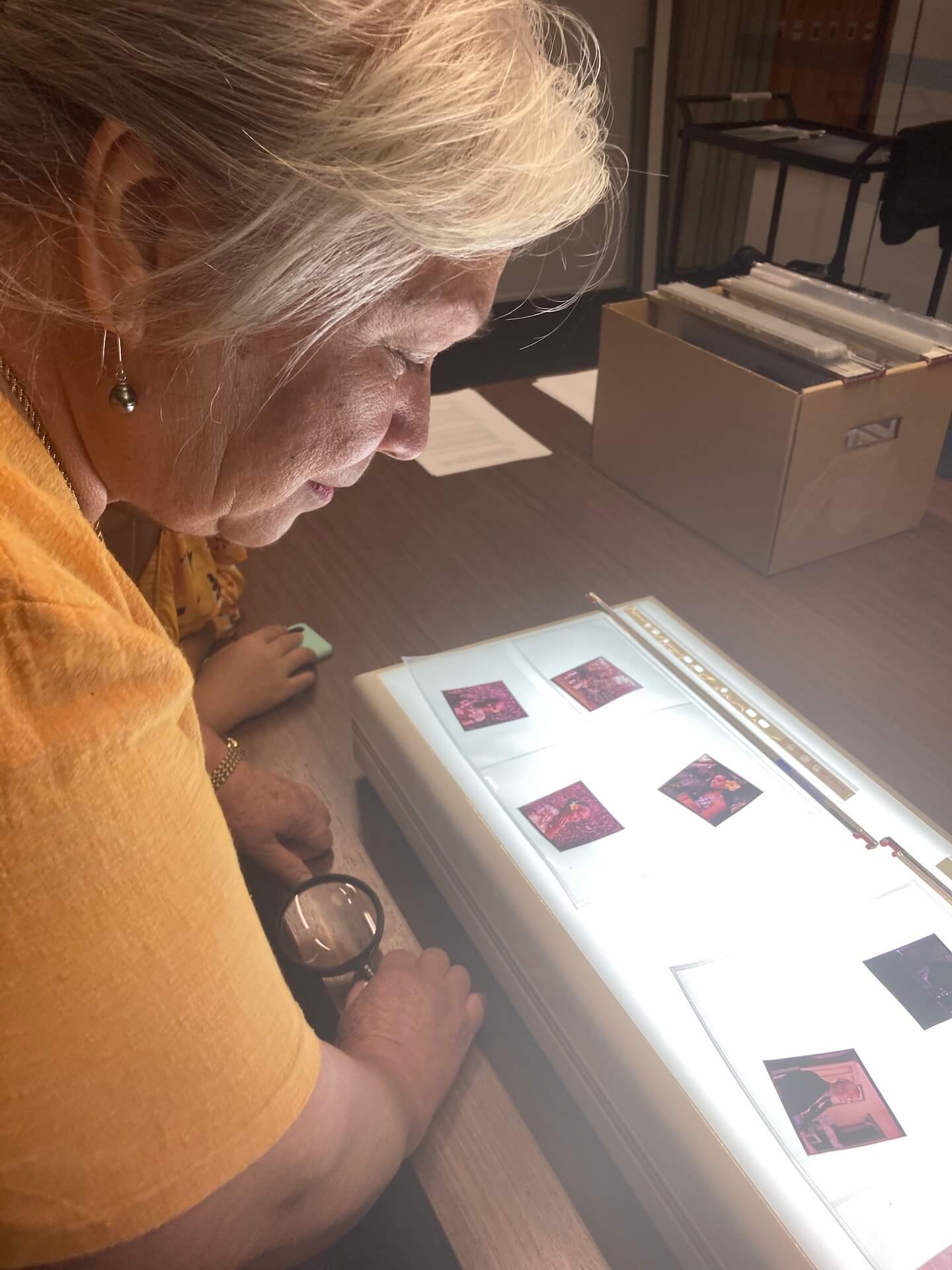
Caroline Raea nee Marsters looking at the Marsters family photos
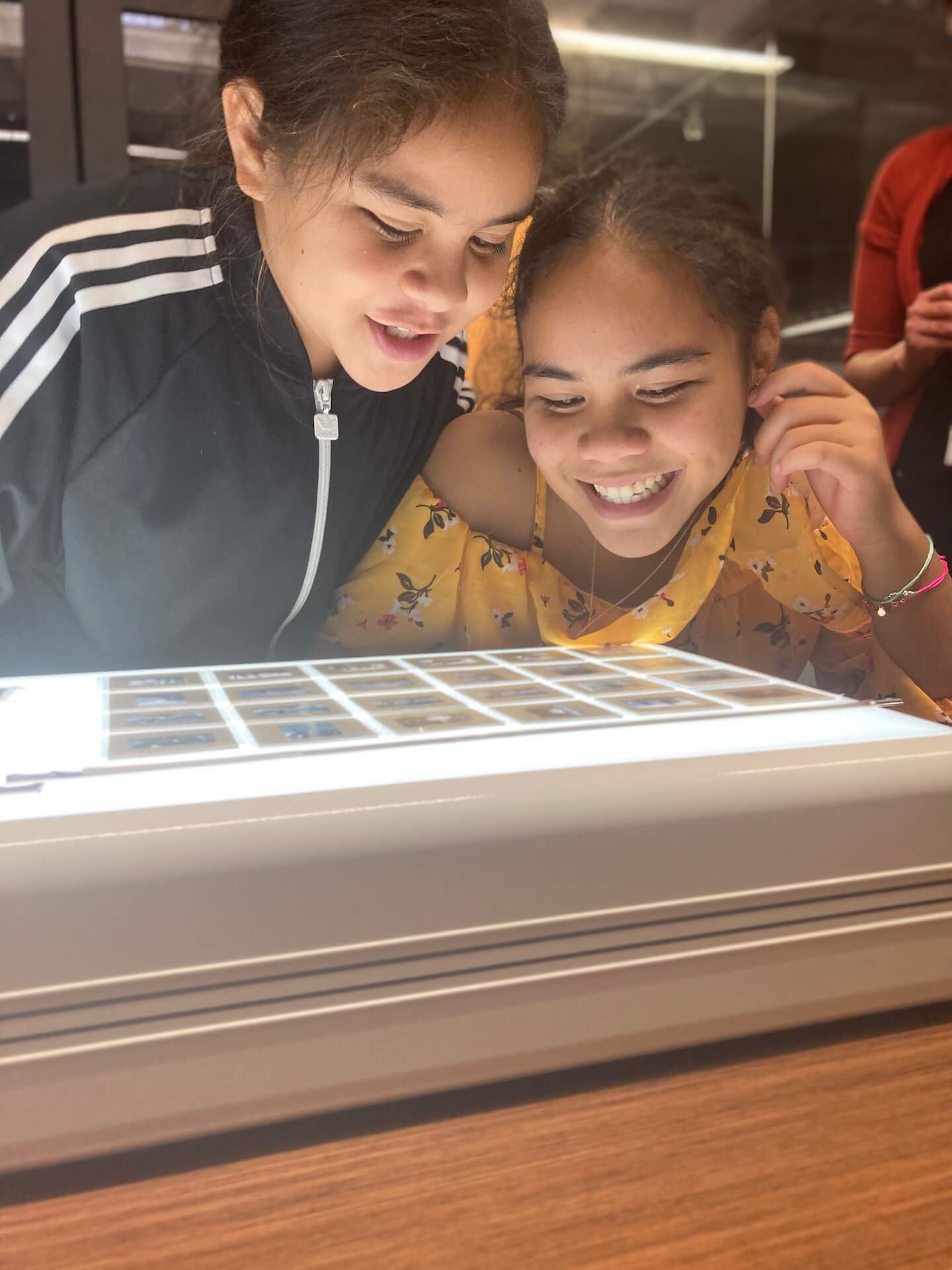
Avina- Noa Raea-Araitia & Metua-Ani Raea-Araitia, looking at the Marsters family photos
During the week celebrating Cook Islands language and culture, I wanted to share the same experiences I had when finding my ancestors. I led the work putting together an event called 'Cook Islands Collections Up-Close'. This was an event hosted by Digital Pasifik and the Alexander Turnbull Library.
A search of the "Cook Islands" on the National Library of New Zealand website, brings up over 170,000 items. This event was an opportunity for the Cook Islands community to come and find connections with a small selection of these items that are publicly accessible. About 40 people from the Cook Islands community in the Wellington region came to the event, with some families coming along, made up of grandparents, parents and grandchildren.
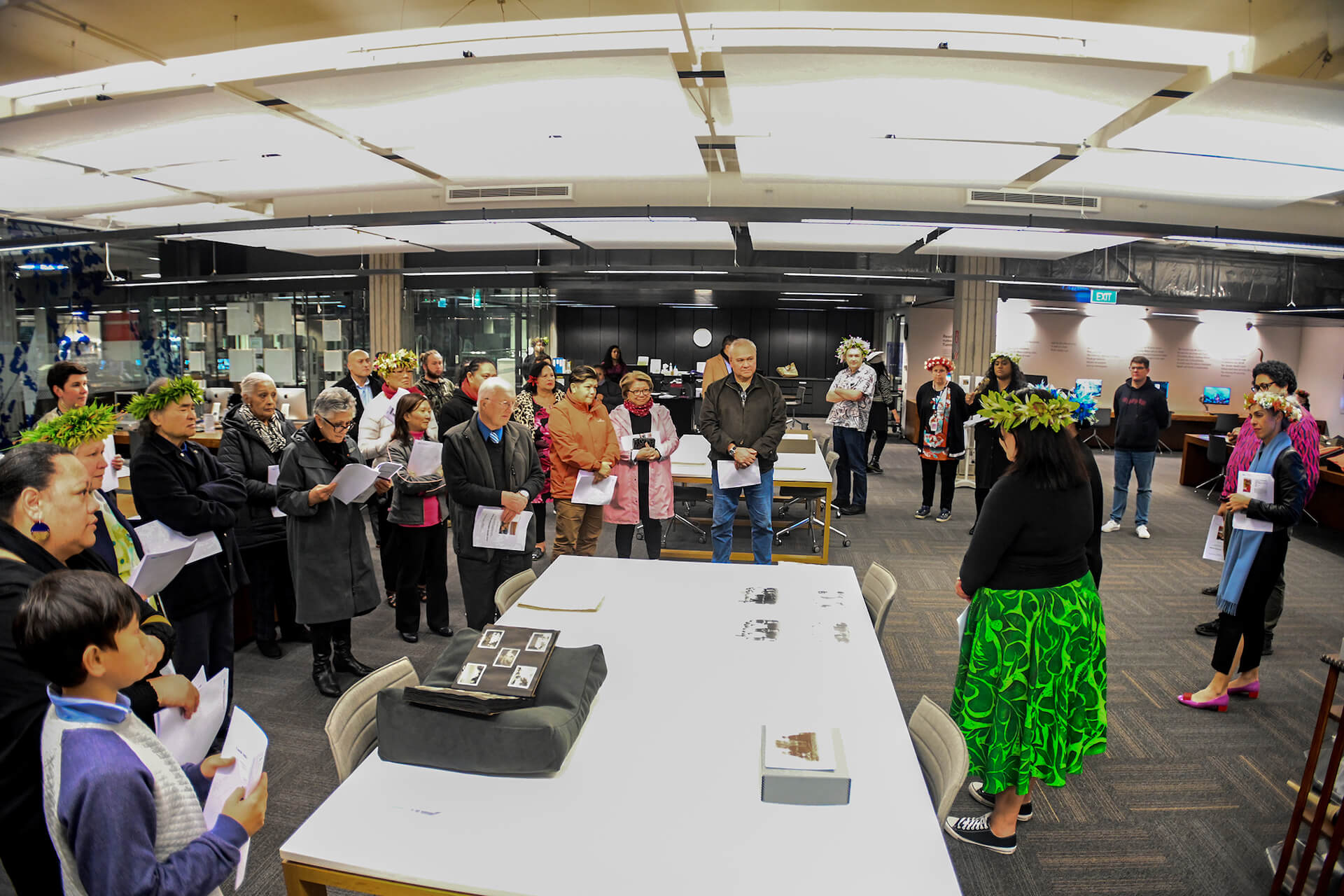
This was a wonderful event where I could see the same amazement in their expressions when they found traces of their ancestors, that I had experienced when sharing with my family.
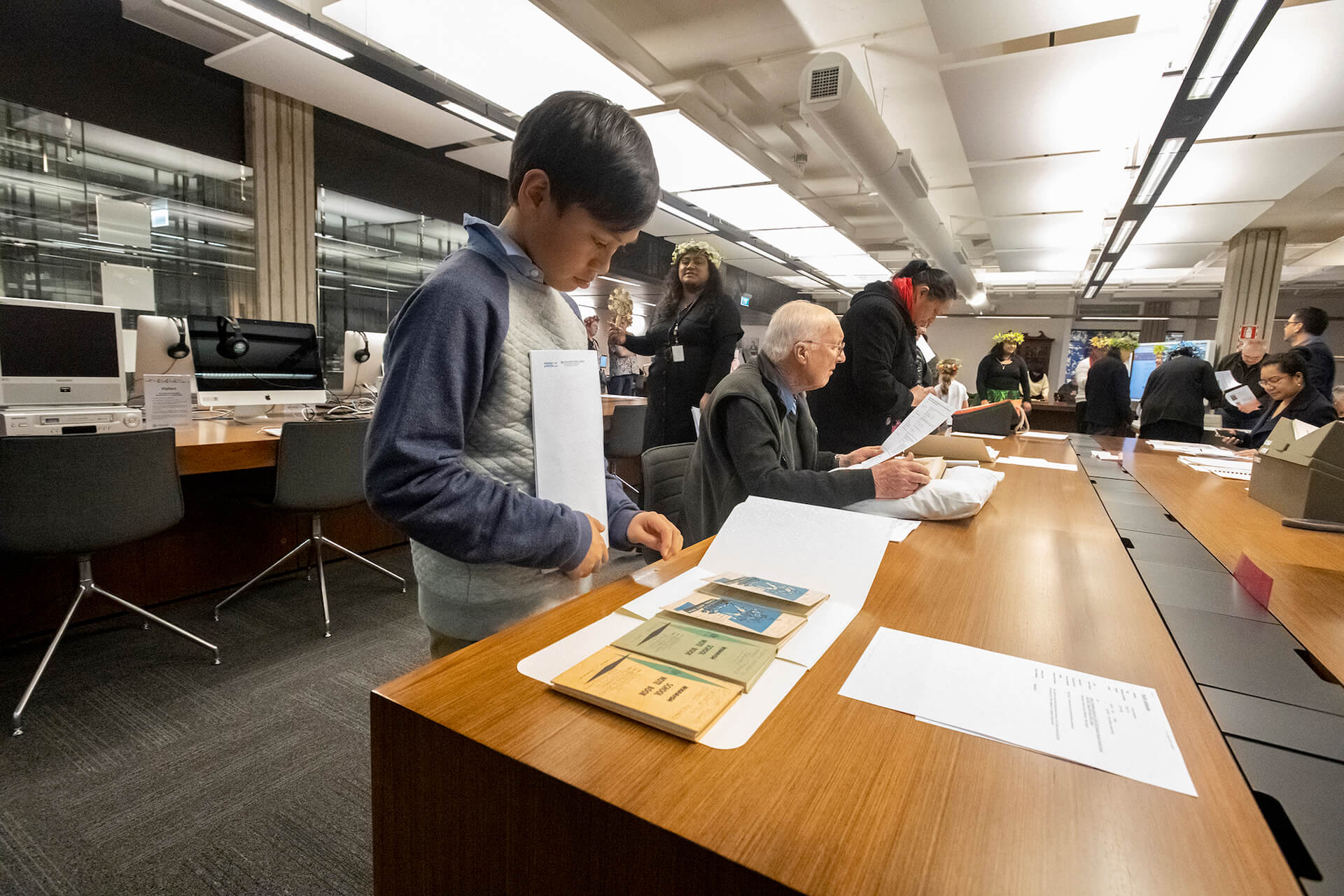
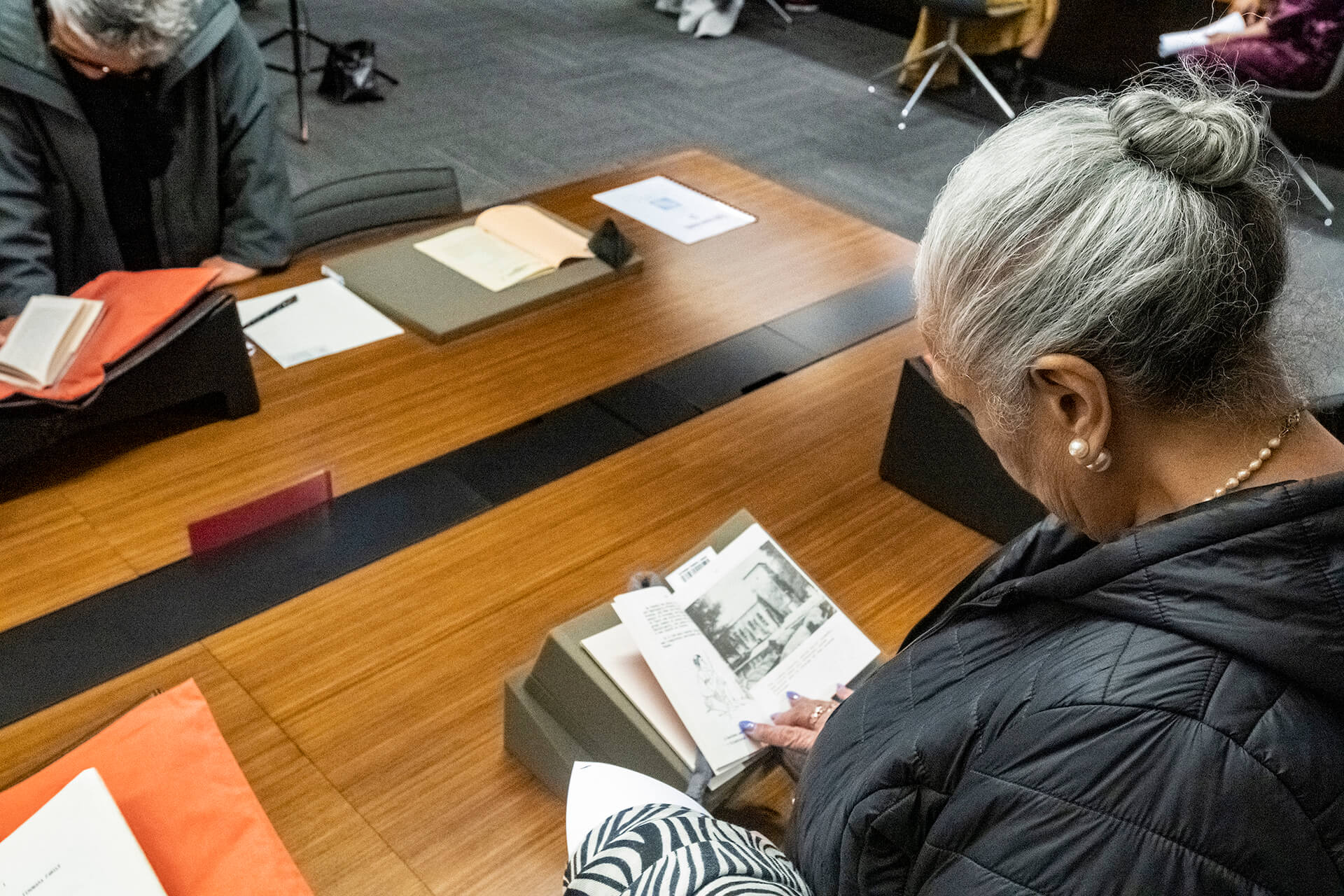
One woman that attended the night brought her mother and aunties who are the granddaughters of Captain Andy Thomson who was the captain of the Schooner Tiare Taporo in the Cook Islands in the early 1900s.
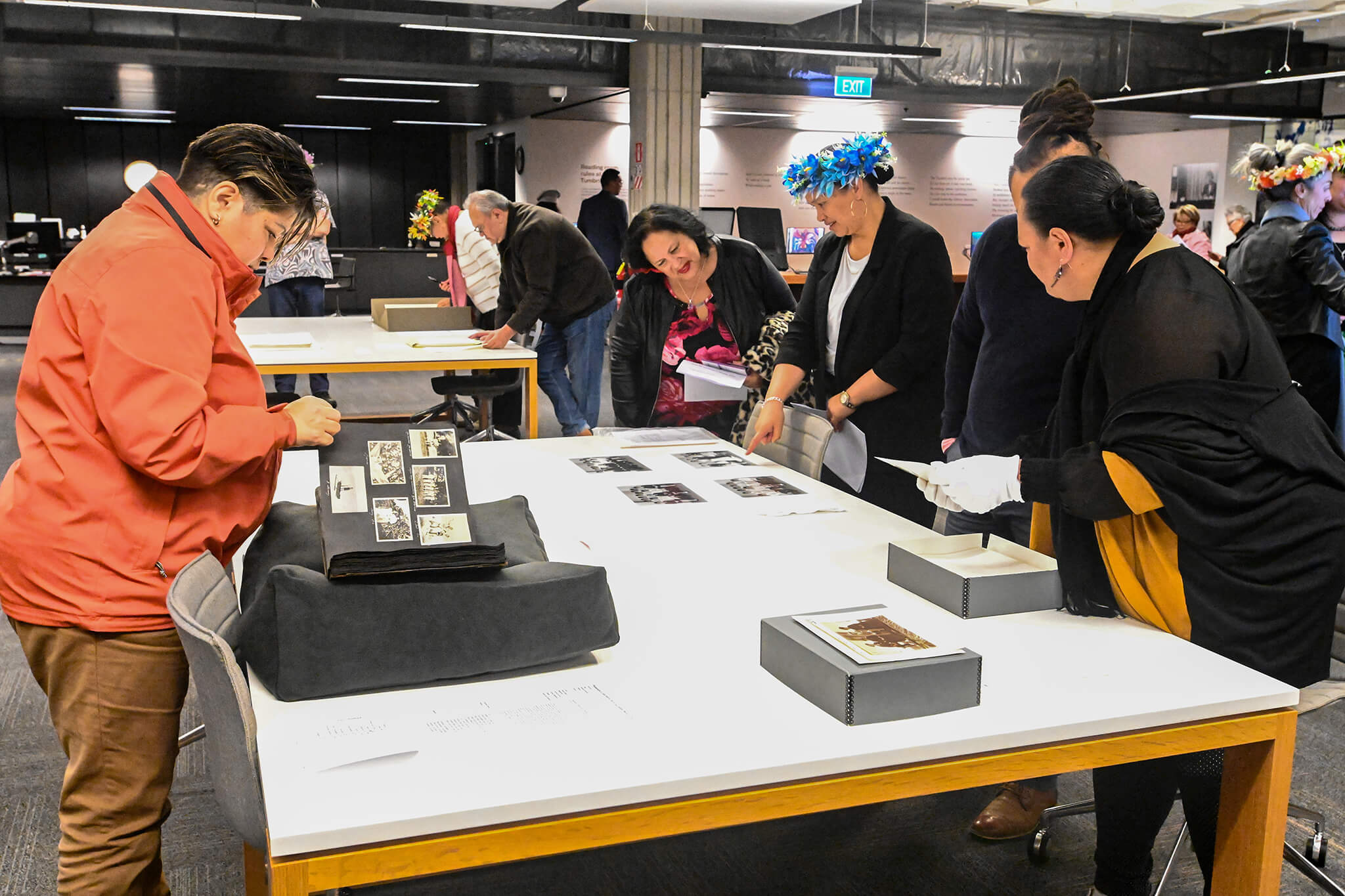
They were able to find records of their grandfather in one of the books shown and discovered records via digitalpasifik.org that they had never seen before. One of these was a Pacific Islands Monthly article, from 1942. This collection was digitised in 2017 and is looked after by the National Library of Australia.
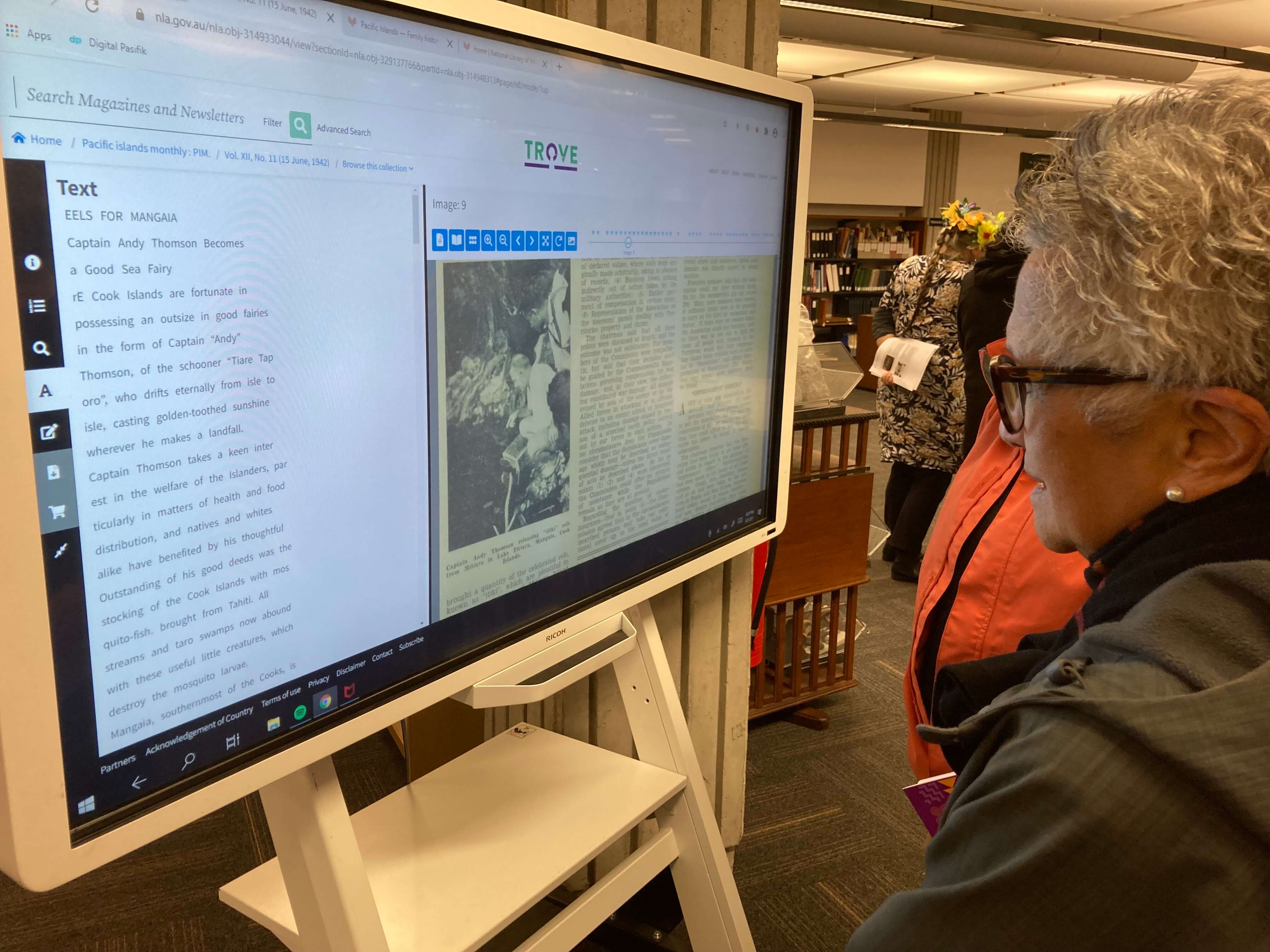
The evening was such a success that we decided to host a virtual version of this event, and to share it via Facebook Live.
Embedded content: https://youtu.be/z6kaQAfZL6wAs I reflect on the theme for Cook Islands language week, I write this during the Level 4 lockdown in Aotearoa, while we are far away from our ipukarea (ancestral lands) and cannot travel physically to the soils of our ancestors.
Our ancestor's memories can be found in other places, whether it be in the stories you hear from your parents, in objects and items you might find in a library or museum, or in digitized records we share on this website.
Tangi te pū. E ra anau’anga kia akama’ara ‘ia. Tangi te pū. E tiare tiana te akamata. Āru ake. E one tea kite ‘ara ta’atai. ‘Ao’ao tāmaka kiri’au kite ēi maire.
Celebrate your identity, your culture, and who you are. Never forget your origins and your ancestors.
Hero Image by Bill Fairs on Unsplash
The information on this site has been gathered from our content partners.
The names, terms, and labels that we present on the site may contain images or voices of deceased persons and may also reflect the bias, norms, and perspective of the period of time in which they were created. We accept that these may not be appropriate today.
If you have any concerns or questions about an item, please contact us.